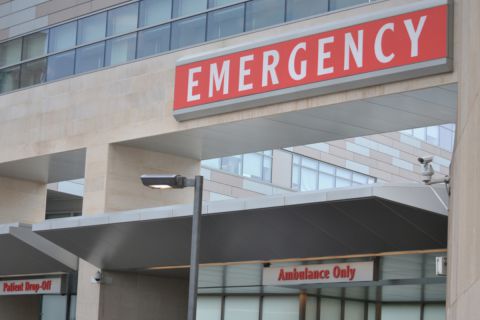
When seeking critical medical care, minutes count — especially when dealing with cases of suspected heart attack, cardiac arrest or stroke. Yet many patients in need of emergency care have delayed or avoided a trip to the hospital fearing possible infection with COVID-19.
In the first three months of the pandemic, Penn State Health Milton S. Hershey Medical Center saw a decrease of up to 50 percent in the number of patients visiting the Emergency Department for serious incidents. Although those numbers are starting to rebound, experts say it is important for patients to understand that not only do hospitals offer safe care, but also that getting fast treatment can prevent disability or death.
“There is a lot of concern about COVID-19 — and you should be concerned as it is very serious — but you are 10 times more likely to die from an untreated heart attack than you are from COVID-19,” said Dr. Chad Zack, an interventional cardiologist at Penn State Heart and Vascular Institute. “Other things we worry about would be sudden cardiac arrest at home, heart failure symptoms in the short term and in the long term, and even delayed complications that can be associated with heart muscle rupture or acute onset valvular heart disease.” [Note: Heart attacks can lead to sudden cardiac arrest.]
While the classic symptoms of a heart attack include chest pain, chest tightness, and aches in the chest or arms that typically radiate to the neck or jaw, some people may experience nausea, abdominal pain or even shortness of breath.
“If you experience any of these symptoms, especially if you have a history of cardiac disease, we urge you to call 911 and be seen promptly — especially if symptoms persist for more than 15 minutes,” Zack said. “If people do have a cardiac history or they’ve had a prior heart attack, their symptoms of a new heart attack may be very similar to what their prior symptoms were.”
SOURCE: Penn State Health News
